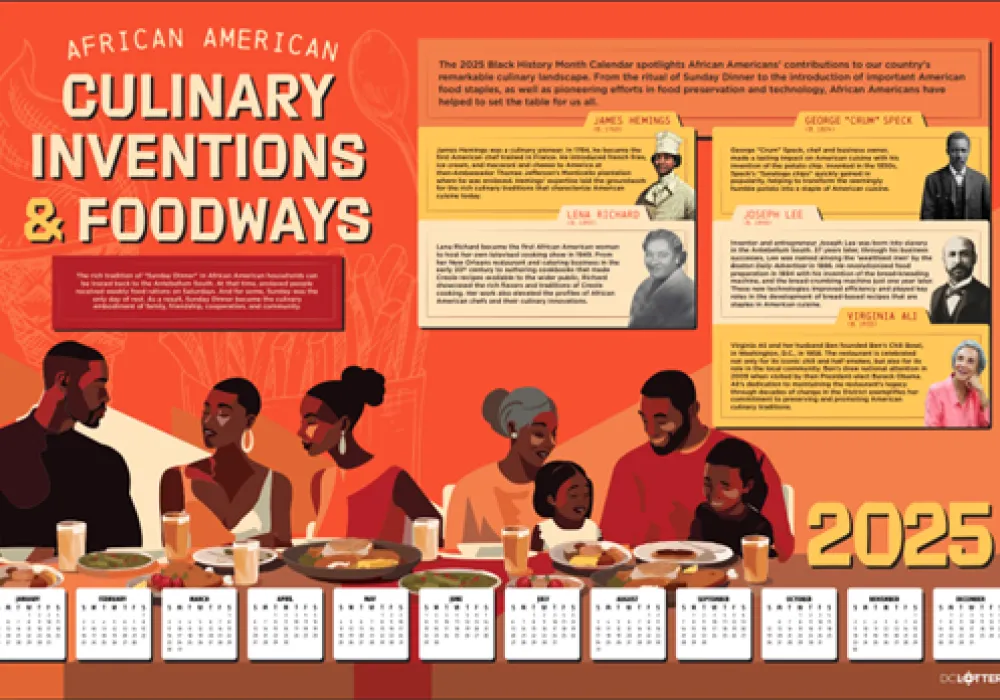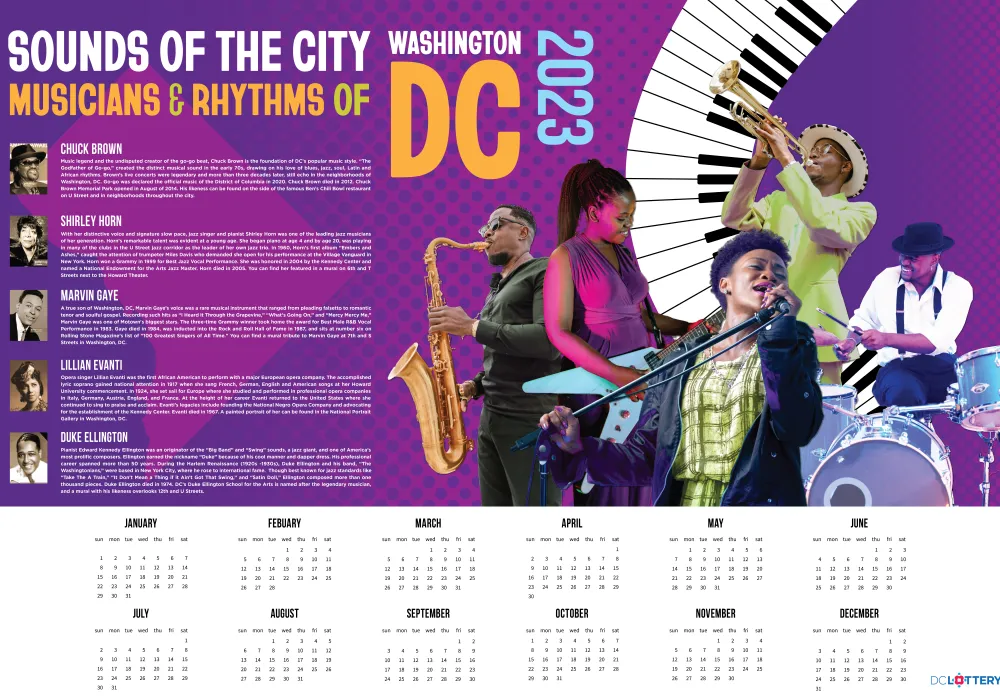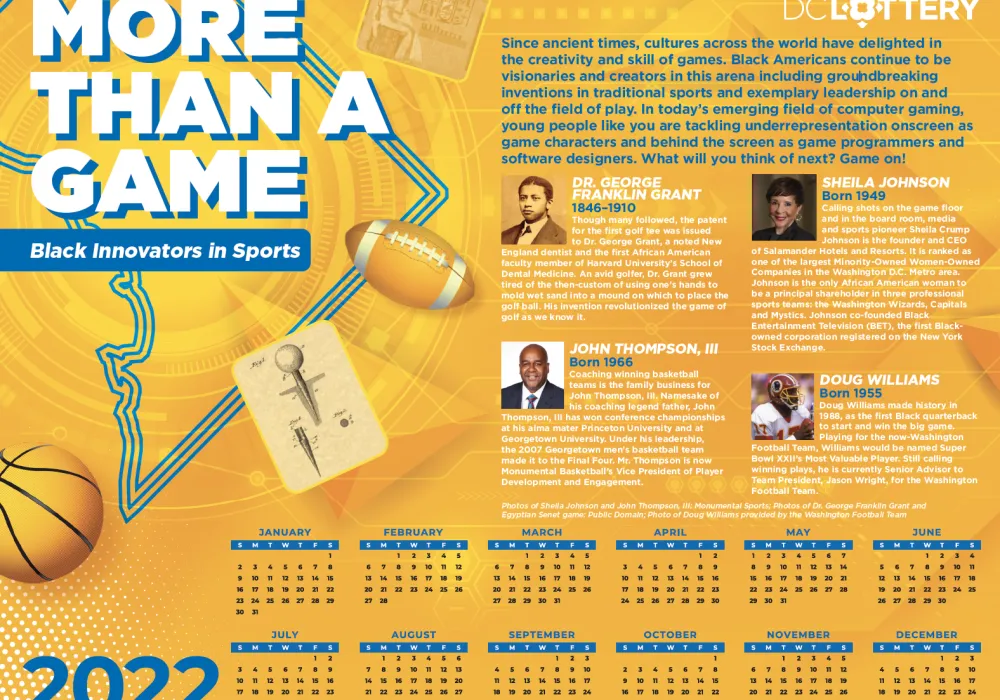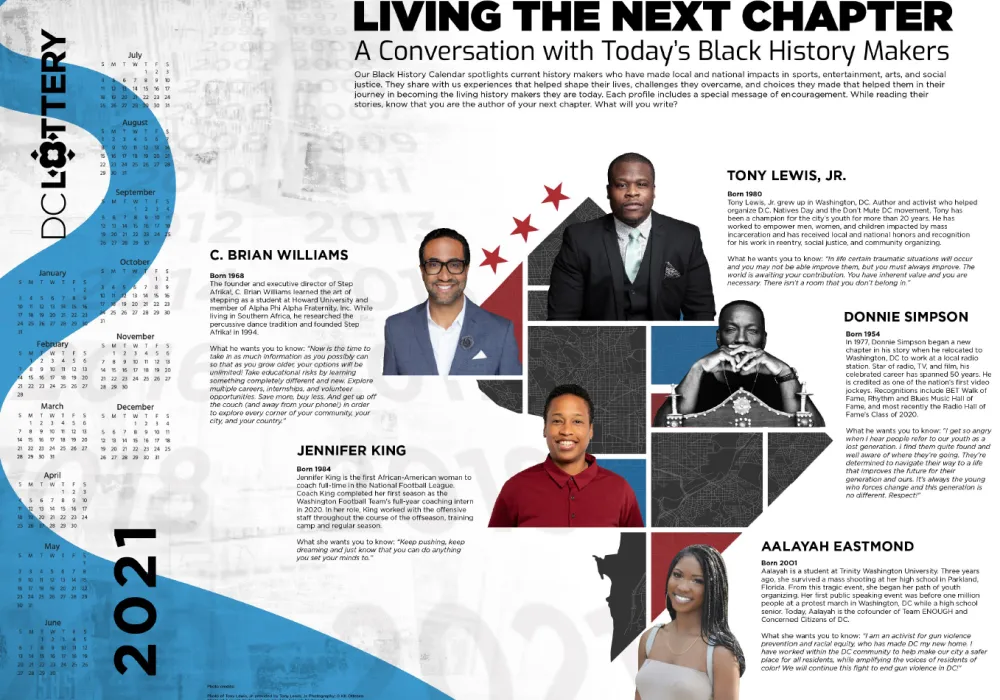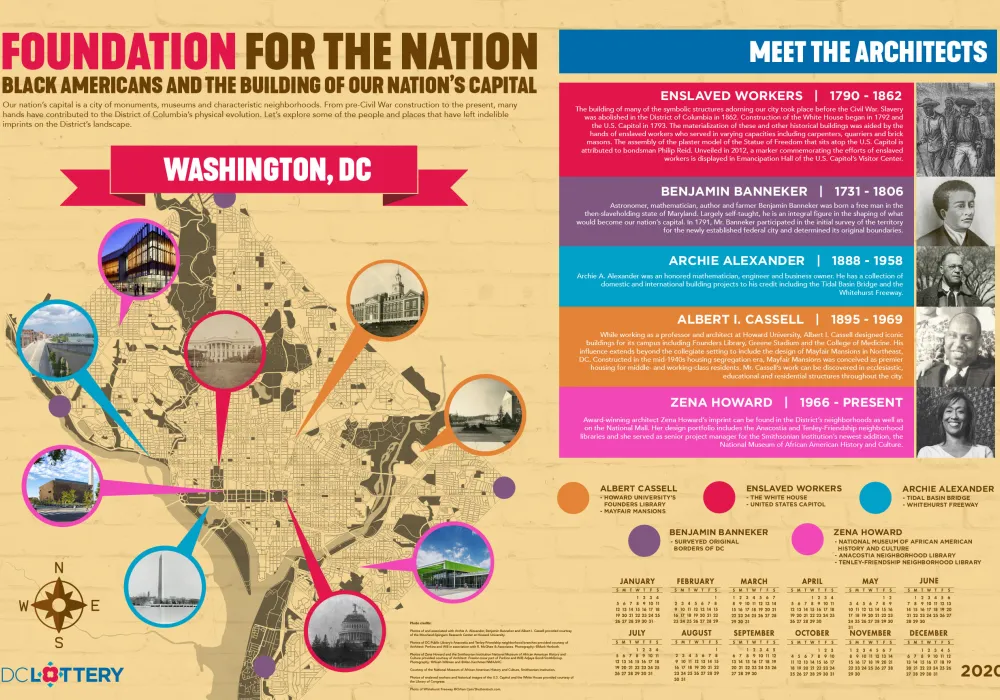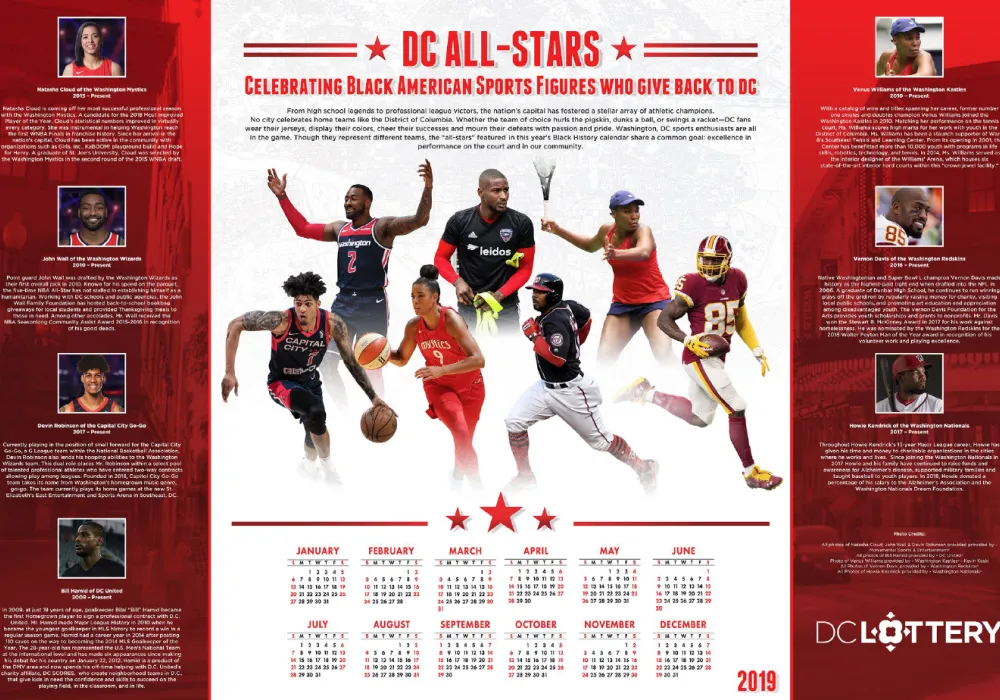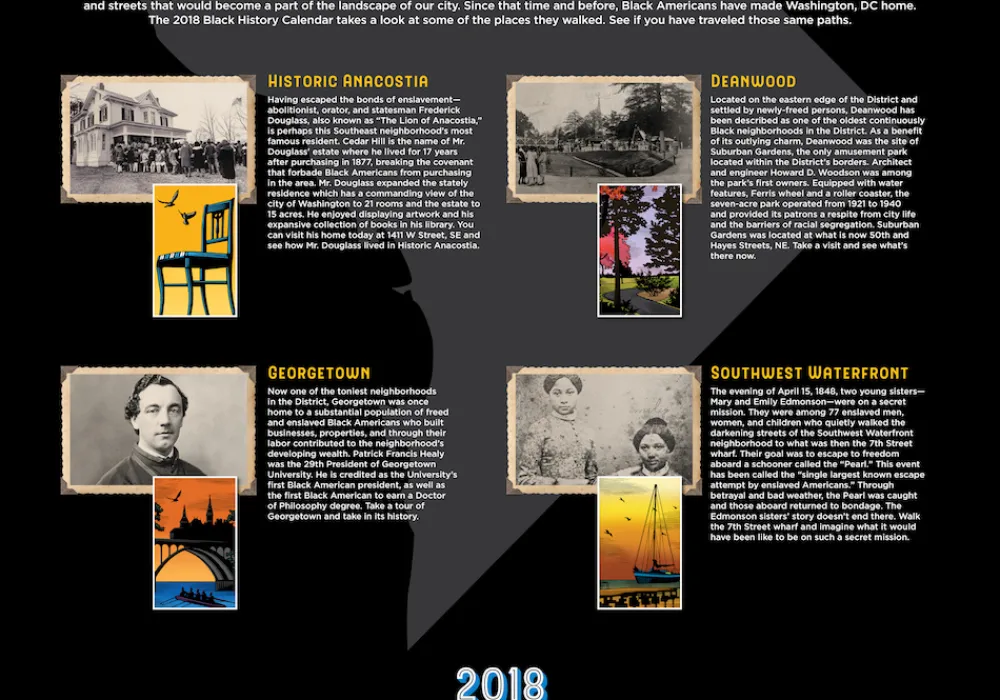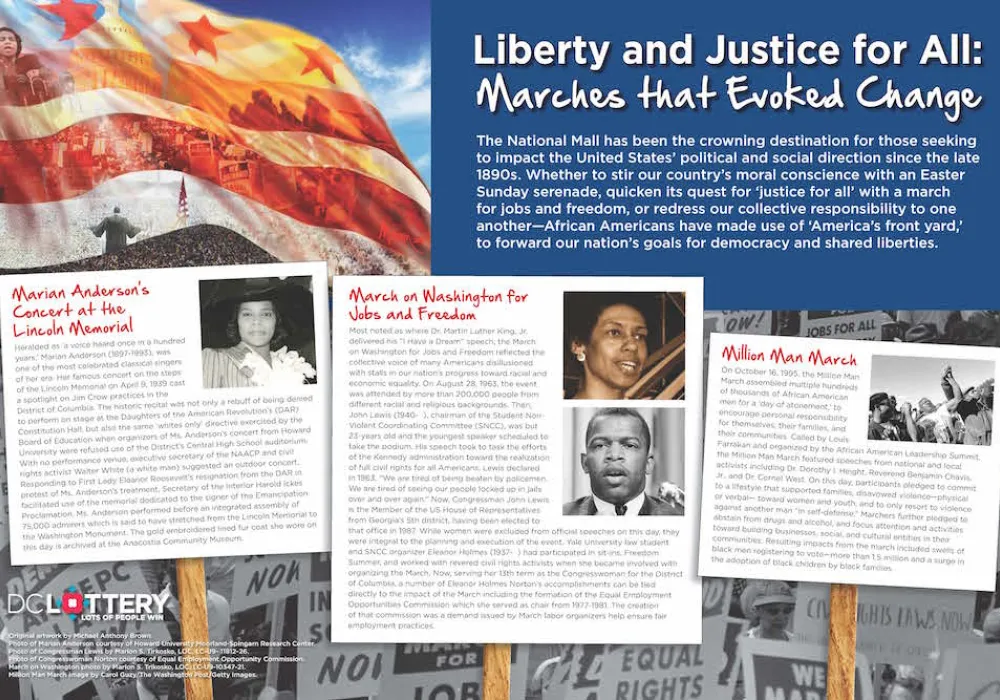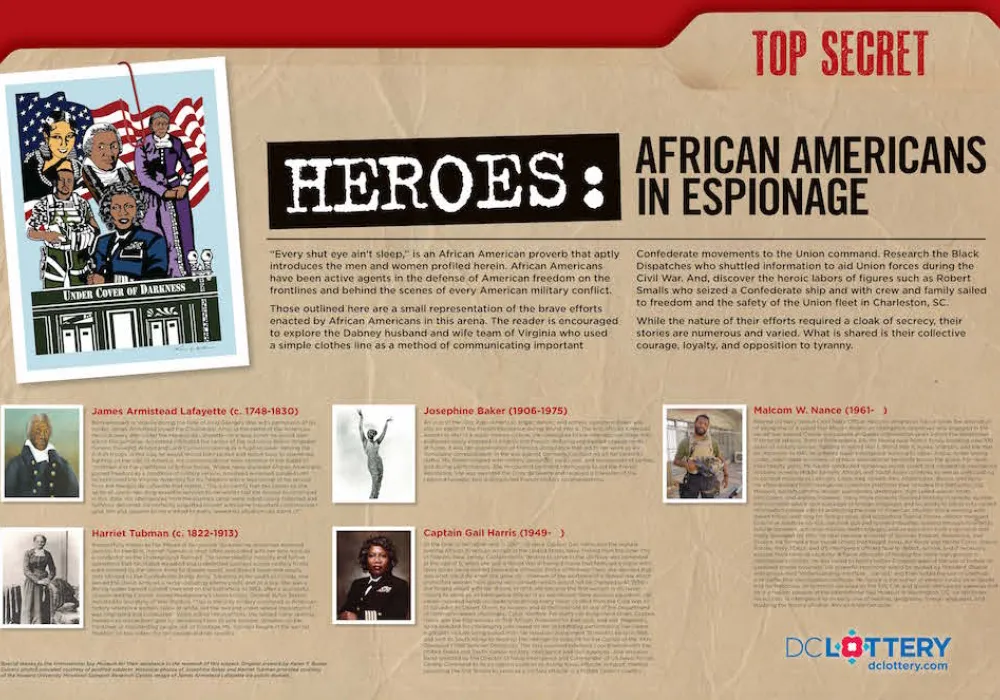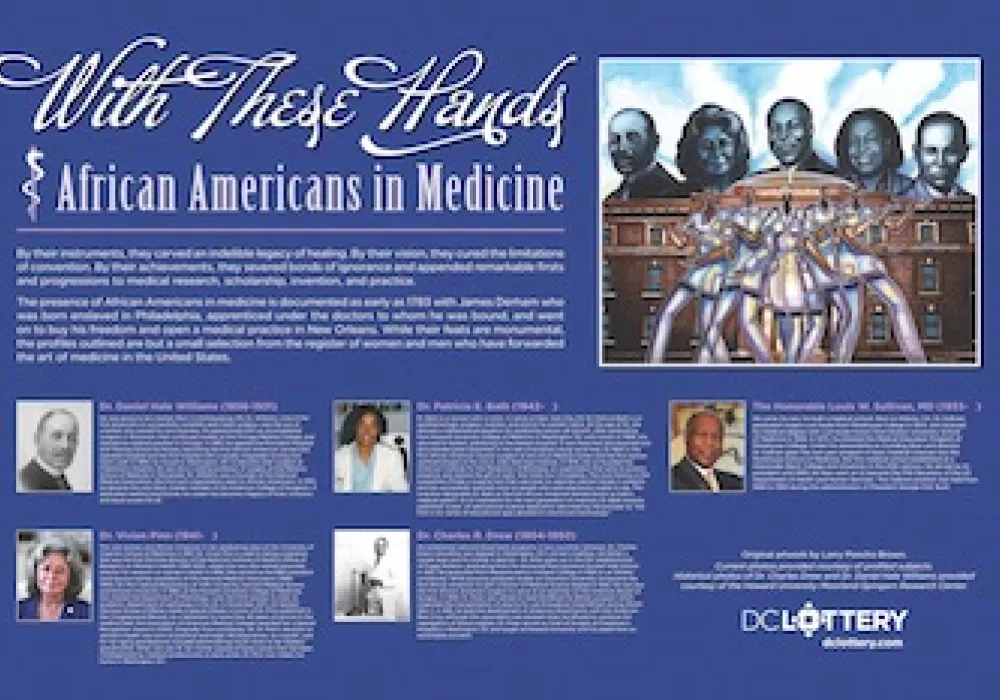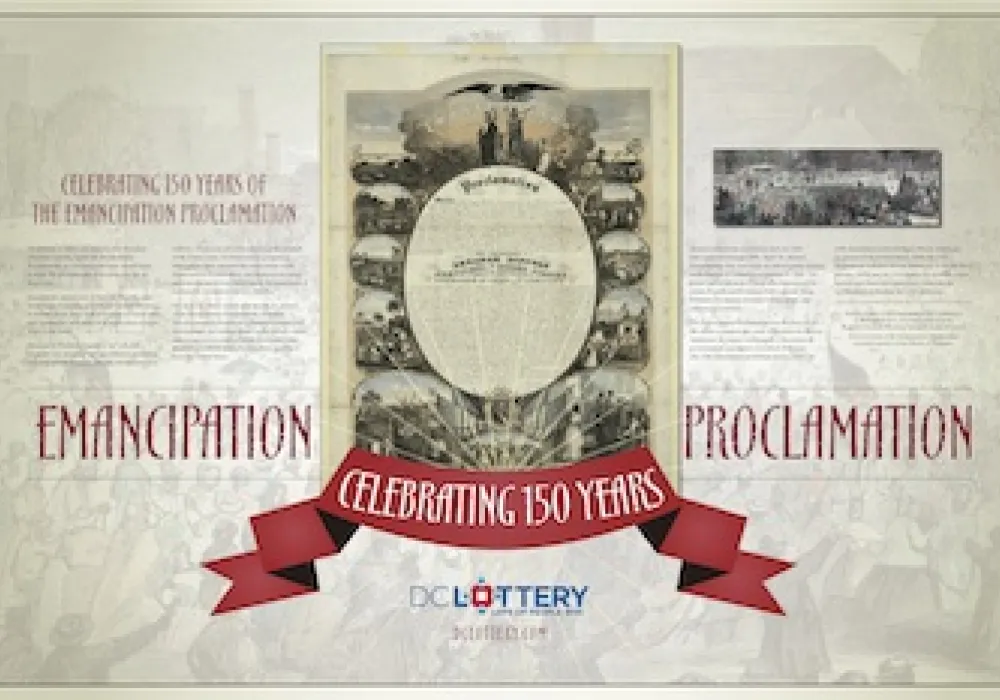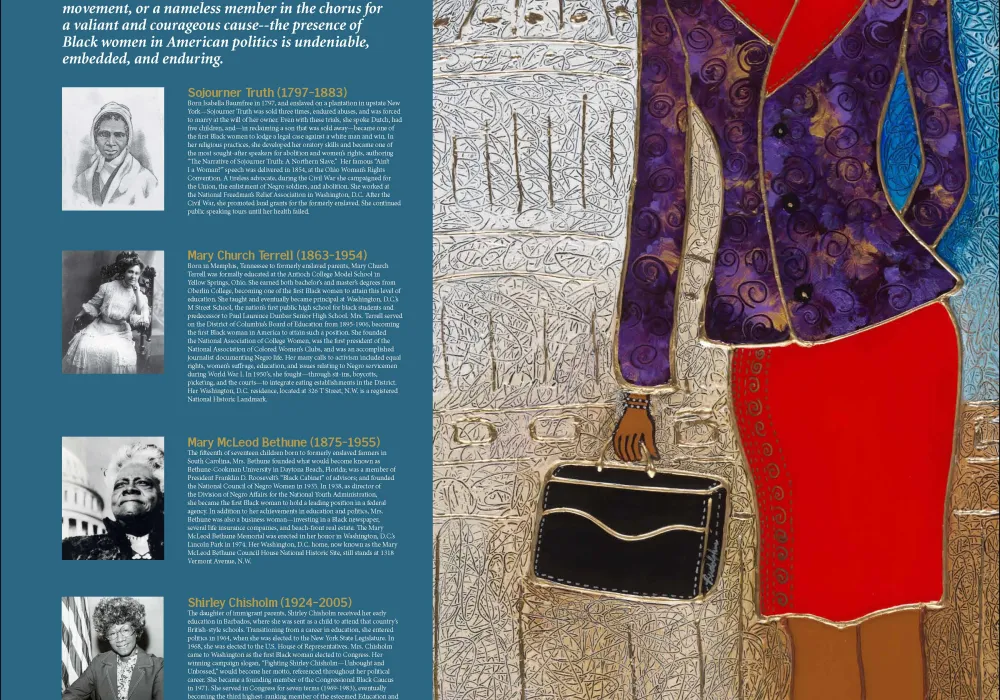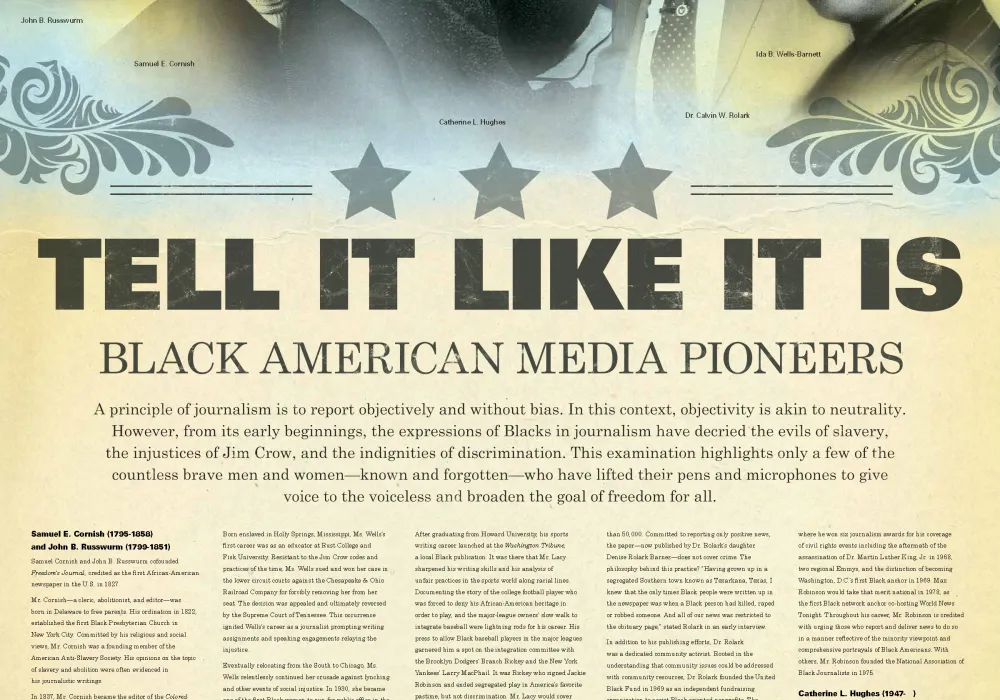DC Lottery's Black History Month Calendars
Initiated in 1986, the DC Lottery’s Black History Month calendar highlights people, places, and events significant to Black History. Free copies are available via digital download and at select DC public libraries and recreation centers.
2025: African American Culinary Inventions & Foodways
African Americans Culinary Inventions & Foodways
From the ritual of Sunday Dinner to the introduction of important American food staples, as well as pioneering efforts in food preservation and technology, African Americans have helped to set the table for us all.
2024: A Stitch in Time
African Americans' Impact on Fashion Design
From the 1600s to today, the fashion industry has been profoundly and enduringly influenced by the Black community.
2023: Sounds of the City
Black Americans have made outstanding contributions to some of the world’s most famous musical genres. Let’s celebrate a few of these music giants for whom DC served as a launchpad. Learn more about R&B legend Marvin Gaye, jazz singer Shirley Horn, king of go-go music Chuck Brown, and more. Now, don’t you feel like “Bustin’ Loose”? We know we do!
2022: Black Innovators in Sports
Since ancient times, cultures across the world have delighted in the creativity and skill of games. Black Americans continue to be visionaries and creators in this arena, including groundbreaking inventions in traditional sports and exemplary leadership on and off the field of play. In today’s emerging field of computer gaming, young people like you are tackling underrepresentation onscreen as game characters and behind the screen as game programmers and software designers. What will you think of next? Game on!
2021: Living the Next Chapter
Our Black History Calendar spotlights current history makers who have made local and national impacts in sports, entertainment, arts, and social justice. They share with us experiences that helped shape their lives, challenges they overcame, and choices they made that helped them in their journey to becoming the living history makers they are today. Each profile includes a special message of encouragement. While reading their stories, know that you are the author of your next chapter. What will you write?
2020: Foundation for the Nation
Black Americans and the Building of Our Nation's Capital
Our nation's capital is a city of monuments, museums, and characteristic neighborhoods. From pre-Civil War construction to the present, many have contributed to the District of Columbia's physical evolution. Let's explore some people and places that have left indelible imprints on the District's landscape.
2019: DC All-Stars - Celebrating Black American Sports Figures Who Give Back to DC
From high school legends to professional league victors, the nation's capital has fostered a stellar array of athletic champions. No city celebrates home teams like the District of Columbia. Whether the team of choice hurls a pigskin, dunks a ball, or swings a racket--DC fans wear their jerseys, display their colors, cheer their successes, and mourn their defeats with passion and pride. Washington, D.C., sports enthusiasts are all in the game. Though they represent different teams, the "all-stars" featured in this year's Black History calendar share a common goal: excellence in performance on the court and in our community.
2018: Celebrating Neighborhoods of the District of Columbia
Historic Black American Presence in Washington, D.C.'s Neighborhoods
Washington, D.C., was declared the nation's capital in 1790. In 1791, Benjamin Banneker-freeman, an astronomer and scientist-was commissioned to assist in surveying the design of our country's new seat of government. This would include the layout of the parks, buildings, and streets that would become part of the landscape of our city. Since that time and before, Black Americans have made Washington, D.C. home. The 2018 Black History Calendar takes a look at some of the places they walked. See if you have traveled those same paths.
2016: Liberty and Justice for All
Marches that Evoked Change
The National Mall has been the crowning destination for those seeking to impact the United States' political and social direction since the late 1890s. Whether to stir out country's moral conscience with an Easter Sunday Serenade, quicken its quest for 'justice for all' with a march for jobs and freedom, or redress our collective responsibility to one another--African Americans have made use of 'America's front yard,' to forward our nation's goals for democracy and shared liberties.
2015: Heroes: African Americans in Espionage
"Every shut eye ain't sleep," is an African American proverb that aptly introduces the men and women profiled herein. African Americans have been active agents in the defense of American freedom on the frontlines and behind the scenes of every American military conflict.
Those outlined here are a small representation of the brave efforts enacted by African Americans in this arena. The reader is encouraged to explore the Dabney husband and wife team of Virginia, who used a simple clothes line as a method of communicating important Confederate movements to the Union command. Research the Black Dispatches who shuttled information to aid Union forces during the Civil War. And discover the heroic labors of figures such as Robert Smalls, who seized a Confederate ship and, with crew and family, sailed to freedom and the safety of the Union fleet in Charleston, S.C.
While the nature of their efforts required a cloak of secrecy, their stories are numerous and varied. What is shared is their collective courage, loyalty, and opposition to tyranny.
2014: With these Hands | African Americans in Medicine
2013: Emancipation Proclamation, Celebrating 150 Years
2012: Lifting a Nation - Black Women in Politics
Fearless, they decried the wrongs of slavery before abolition. Righteous, they claimed the right to vote while disenfranchised. Bold, they sought the highest office in the land when few thought it plausible. Whether as the voice of dissension, the tenor of a movement, or a nameless member in the chorus for a valiant and courageous cause--the presence of Black women in American politics is undeniable, embedded, and enduring.
The selection of women profiled does not begin to represent the breadth of the contributions made by Black women in the sphere of American politics.
2010: Tell it Like it is
Black American Media Pioneers
A principle of journalism is to report objectively and without bias. In this context, objectivity is akin to neutrality. However, from its early beginnings, the expression of Blacks in journalism have decried the evils of slavery, the injustices of Jim Crow, and the indignities of discrimination. This examination highlights only a few of the countless brave men and women--known and forgotten--who have lifted their pens and microphones to give voice to the voiceless and broaden the goal of freedom for all.
